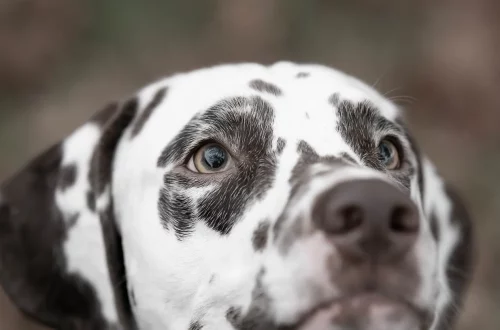
The Benefits of Natural Magnesium for Your Cat’s Health
Magnesium is a vital mineral that plays a crucial role in the overall health and well-being of both humans and animals. While many pet owners are aware of the importance of a balanced diet for their furry friends, magnesium often gets overlooked. This essential nutrient is involved in numerous biochemical processes in the body, contributing to everything from nerve function to muscle contraction. For cats, who are obligate carnivores, the right balance of nutrients is particularly important, as their dietary needs differ significantly from those of other pets.
Understanding the natural sources of magnesium and how it can positively impact your cat’s health is key to ensuring they live a long, vibrant life. In recent years, there has been a growing interest in natural supplements and dietary approaches that emphasize the benefits of minerals like magnesium. This shift is not just a trend; it reflects a deeper understanding of feline health and nutrition. As more research emerges, pet owners are becoming increasingly aware of the benefits that vital nutrients can provide, leading to improved health outcomes for their beloved companions.
As we delve into the various aspects of natural magnesium and its influence on cat health, it becomes clear that this mineral is more than just a dietary component; it is a cornerstone of feline wellness.
Understanding the Role of Magnesium in Cats
Magnesium is an essential mineral that plays a multifaceted role in maintaining the health of cats. It is involved in over 300 biochemical reactions within the body, which makes it critical for optimal cellular function. One of the primary functions of magnesium is its role in energy production. It supports the synthesis of adenosine triphosphate (ATP), the energy currency of cells, enabling cats to engage in their daily activities, from playing to grooming.
Moreover, magnesium is a key player in muscle function. It helps regulate muscle contractions and relaxation, which is crucial for a cat’s movement and agility. A deficiency in magnesium can lead to muscle cramps and weakness, making it difficult for cats to perform their usual activities. This can be particularly concerning for active cats or those that engage in regular exercise.
Another significant aspect of magnesium is its involvement in nerve function. It aids in transmitting signals between nerves and muscles, ensuring that the nervous system operates smoothly. Proper magnesium levels can help prevent issues such as seizures or nervous disorders, which can be detrimental to a cat’s quality of life.
Furthermore, magnesium plays a role in maintaining a healthy heart. It helps regulate heart rhythms and is involved in the contraction and relaxation of the heart muscle. Ensuring that your cat has adequate magnesium can contribute to cardiovascular health, reducing the risk of heart disease.
In summary, magnesium is vital for energy production, muscle functionality, nerve signaling, and heart health. Understanding these roles is the first step in appreciating why it is essential to ensure that your cat receives an adequate amount of this mineral in their diet.
Natural Sources of Magnesium for Cats
When it comes to providing your cat with natural sources of magnesium, it’s essential to focus on their dietary intake. Cats are obligate carnivores, meaning their primary source of nutrition comes from animal-based proteins. Fortunately, many natural food options are rich in magnesium, making it easier for pet owners to ensure their felines receive adequate amounts.
Fish, particularly varieties like salmon, mackerel, and sardines, are excellent sources of magnesium. Incorporating these into your cat’s diet not only provides magnesium but also offers omega-3 fatty acids, which are beneficial for skin and coat health. However, it’s important to serve fish in moderation and ensure it is cooked properly to avoid any potential health risks.
Another rich source of magnesium is meat, particularly organ meats such as liver and kidney. These parts of the animal are nutrient-dense and can be a fantastic addition to your cat’s diet. Beef, chicken, and turkey provide not only magnesium but also a balance of other essential nutrients that contribute to overall health.
Additionally, certain whole grains and legumes, such as brown rice and chickpeas, can be included in small amounts in your cat’s diet. While cats primarily thrive on animal protein, these plant-based options can complement their diet and introduce other beneficial nutrients.
For those considering supplements, natural magnesium supplements derived from sources such as seaweed can be an excellent addition. These supplements often come in forms that are easy to administer and can help ensure that your cat’s magnesium levels are optimal without the risk of over-supplementation.
Incorporating a variety of these natural sources into your cat’s diet not only ensures they receive adequate magnesium but also promotes a balanced and nutritious diet that supports their overall health and vitality.
Signs of Magnesium Deficiency in Cats
Recognizing the signs of magnesium deficiency in cats is crucial for maintaining their health. While most cats receive adequate magnesium from a balanced diet, some may experience deficiencies due to dietary imbalances or health issues. Being aware of the symptoms can help pet owners take timely action to address the issue.
One of the most common signs of magnesium deficiency is muscle twitching or spasms. This occurs because magnesium is vital for muscle contraction and relaxation. If you notice your cat exhibiting unusual muscle movements or difficulty in movement, it may be a sign that they are lacking this essential mineral.
Another symptom to watch for is lethargy or a noticeable decrease in activity levels. Cats that are typically energetic may become more sedentary if they are not getting enough magnesium. This can lead to weight gain and other health concerns over time, making it important to address the deficiency promptly.
In addition to physical symptoms, magnesium deficiency can also impact a cat’s behavior. Cats may become more irritable or anxious as a result of improper nerve function. This change in behavior can be concerning for pet owners, as it may affect the bond between them and their feline companion.
Severe deficiencies can lead to more serious health issues such as heart problems or seizures. If you observe any of these alarming symptoms, it is essential to consult a veterinarian immediately. They can conduct tests to determine magnesium levels and recommend appropriate dietary changes or supplements.
By being proactive and recognizing the signs of magnesium deficiency, pet owners can take the necessary steps to ensure their cats remain healthy and happy. Regular veterinary check-ups and maintaining a balanced diet are key components of this preventative approach.
Incorporating Magnesium into Your Cat’s Diet Safely
When it comes to incorporating magnesium into your cat’s diet, moderation and balance are key. While magnesium is essential for health, it is possible for cats to have too much of a good thing. Over-supplementation can lead to hypermagnesemia, a condition characterized by excessive magnesium in the blood, which can result in serious health issues.
To safely incorporate magnesium into your cat’s diet, start by focusing on natural food sources. As discussed earlier, fish, meat, and certain whole grains can provide adequate amounts of magnesium without the risks associated with supplements. When introducing new foods, always do so gradually to avoid gastrointestinal upset.
If you consider using magnesium supplements, it’s crucial to consult with your veterinarian first. They can help determine if your cat requires additional magnesium and recommend appropriate dosages. Some supplements may contain additional vitamins and minerals that can further support your cat’s health, but they should be given under professional guidance.
Always monitor your cat for any changes in behavior or health after introducing new foods or supplements. If you notice any adverse reactions, discontinue use and consult your veterinarian.
Finally, maintaining a balanced diet is essential. Ensure that your cat’s diet is varied and includes a mix of proteins, fats, and carbohydrates. This approach not only provides magnesium but also helps meet all of your cat’s nutritional needs.
In conclusion, magnesium is a vital nutrient that contributes significantly to feline health. By understanding its role, recognizing deficiency signs, and safely incorporating it into your cat’s diet, you can help ensure your feline friend enjoys a long and healthy life.
**Disclaimer:** This article is not intended as medical advice. For any health concerns regarding your pet, please consult a veterinarian.




